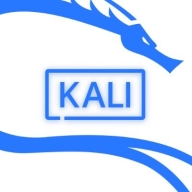

MongoDB Atlas and Kali Linux operate in different domains, with Atlas focusing on database management and Kali specializing in cybersecurity tools. Based on the comparison, MongoDB Atlas seems to have the upper hand due to its scalability and ease of use.
Features: MongoDB Atlas is valued for its scalability, flexibility, and seamless backup management. Its schemaless architecture and rich query support offer users significant ease of use, especially in cloud environments. On the other hand, Kali Linux is equipped with security-focused tools such as Nmap and Metasploit Framework, which are ideal for conducting security assessments and penetration testing.
Room for Improvement: MongoDB Atlas could enhance its dashboard usability, integration capabilities, and address cost concerns, along with handling large datasets more efficiently. For Kali Linux, improvements could be made in its user interface, automation processes, and integrating AI and machine learning capabilities. Streamlining the installation process could also enhance its user experience.
Ease of Deployment and Customer Service: MongoDB Atlas offers flexible deployment in public and hybrid clouds and is praised for its technical support despite being costly. Kali Linux, generally used on-premises, features straightforward customer service and its on-premise nature reduces scalability issues.
Pricing and ROI: MongoDB Atlas uses a pay-as-you-go model, with additional costs for support agreements, offering good value through scalability and reduced infrastructure management. Kali Linux is open-source, eliminating licensing fees and generally providing a solid ROI through its invaluable security tools, although enterprise versions may result in additional costs.


Kali Linux is widely used by organizations for penetration testing, vulnerability assessments, web application security, network audits, ethical hacking, and open-source intelligence, providing extensive free features.
Organizations run Kali Linux in virtualized environments alongside other operating systems, employing tools for automated scans, malware identification, infrastructure testing, and application development or hosting. These users benefit from lower maintenance requirements and a smaller footprint. The toolset includes Nmap, SQLMap, Metasploit, and Hydra, ensuring effective security assessments. Its high scalability, performance, user-friendly interface, and extensive documentation enhance the platform's usability. Known for stability, flexibility, and virus resistance, Kali Linux supports web security, troubleshooting, and configuration tasks comprehensively.
What are the most important features of Kali Linux?Kali Linux can support industries in improving security through stable and flexible environments that resist viruses and provide extensive documentation. Users employ it for web security, troubleshooting, and configuring capabilities. Necessary improvements include automation, user-friendliness, and integrating AI and blockchain. Enhancements in security features, faster installations, and better learning tools are also essential. Machine learning integration and non-enterprise user functionalities can address current limitations.
MongoDB Atlas stands out with its schemaless architecture, scalability, and user-friendly design. It simplifies data management with automatic scaling and seamless integration, providing dynamic solutions for diverse industries.
MongoDB Atlas offers a cloud-based platform valued for its seamless integration capabilities and high-performance data visualization. It features advanced security options such as encryption and role-based access control alongside flexible data storage and efficient indexing. Users benefit from its robust API support and the ability to manage the platform without an extensive setup process. Feedback suggests improvements are needed in usability, query performance, security options, and third-party tool compatibility. While pricing and support services could be more economical, there is a demand for enhanced real-time monitoring and comprehensive dashboards, as well as advanced containerization and scalability options supporting complex database structures.
What are the key features of MongoDB Atlas?In healthcare and finance, MongoDB Atlas manages payment transactions and facilitates real-time analytics, powering SaaS solutions and storing large volumes of user data. It enhances scalability, performance, and security for cloud hosting, IoT integrations, and Node.js environments, widely favored for its flexibility and capability to support microservices.
We monitor all AWS Marketplace reviews to prevent fraudulent reviews and keep review quality high. We do not post reviews by company employees or direct competitors. We validate each review for authenticity via cross-reference with LinkedIn, and personal follow-up with the reviewer when necessary.